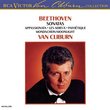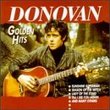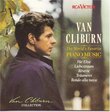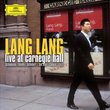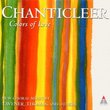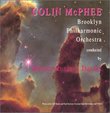| All Artists: Christopher Lyndon-Gee Title: MARKEVITCH: Orchestral Music, Vol. 1 - Le Nouvel Age / Sinfonietta / Cinema Overture Members Wishing: 0 Total Copies: 0 Label: Marco-Polo Release Date: 7/31/2009 Genre: Classical Styles: Forms & Genres, Symphonies, Symphonies Number of Discs: 1 SwapaCD Credits: 1 UPC: 730099365321 |
Search - Christopher Lyndon-Gee :: MARKEVITCH: Orchestral Music, Vol. 1 - Le Nouvel Age / Sinfonietta / Cinema Overture
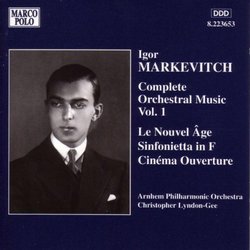 | Christopher Lyndon-Gee MARKEVITCH: Orchestral Music, Vol. 1 - Le Nouvel Age / Sinfonietta / Cinema Overture Genre: Classical
MARKEVITCH: Orchestral Music, Vol. 1 - Le Nouvel Age / Sinfonietta / Cinema Overture by Christopher Lyndon-Gee |
Larger Image |
CD DetailsSynopsis
Album Description MARKEVITCH: Orchestral Music, Vol. 1 - Le Nouvel Age / Sinfonietta / Cinema Overture by Christopher Lyndon-Gee Similarly Requested CDs
|
CD ReviewsRemarkable music, slightly let down by the performances G.D. | Norway | 10/15/2009 (4 out of 5 stars) "Igor Markevitch's claim to fame still rests on his work as a conductor - indeed as one of the most remarkable conductors of the twentieth century. But the Marco Polo series of his orchestral music, should - if there is any justice - fill out that picture significantly. Indeed, I don't think I am exaggerating that this series reveals him as one of the most remarkable composers of the twentieth century as well. To emphasize: Markevitch is not merely a conductor who also composed (as most conductor-composers do: in a slightly derivative way with skillfully written and often interesting, but rarely striking results); Markevitch's music is highly original, spectacularly enjoyable, always fresh and bold. Indeed, Markevitch is perhaps the most convincing representative of Russian futurism (Prokofiev's forays into the genre perhaps excepted) I've heard. Even so, I readily admit that the stylistic range is rather limited, and I can, in a sense, see why he gave up composing so early instead of continuing to write the same pieces over and over (despite admiration from the likes of Britten, Stravinsky, Milhaud and Bartok). Still, we should be truly grateful for having this remarkable body of music, and also be grateful to the Arnhem Philharmonic, Christopher Lyndon-Gee and Marco Polo for making it available in at least acceptable, often more than just acceptable, performances.
Le Nouvel Age is something of a futuristic masterpiece. Cast in three movements, the first inhabits the same atmosphere as Antheil's Ballet mechanique and Mossolov's Iron Foundry, the second is an eerie, shimmering, otherworldly, radiantly neon-light Adagio and the final Hymn an aggressive, swirling, mechanical dance drawing some remarkable sounds from the orchestra (shouting brass, braying woodwind, thunderous strings). The Sinfonietta, on the other hand, is Markevitch's earliest acknowledged work, written at the age of 16, and is a superbly assured, mature work of real distinction. Stylistic influences are still audible (Hindemith and Prokoviev, and - one speculates - composers such as Roslavets and Steinberg; although it is hard to judge exactly who influenced who (Prokofiev had, for instance, not yet written the works to which the kinship sounds the strongest)). It is, as most of his works, boldly braying and rhythmically propulsive (though rather complex), with heavy reliance on ostinato, wiry counterpoint and glittering orchestration, with a busy, frenziedly jocular first movement, an almost neo-classical andante with some remarkable instrumental touches, and a clangorous, tinny (not in a negative sense), energetic allegro risoluto. The most futuristic sounding work, however, is probably the polyrhythmic Cinema Overture. This is a collage-like work (yes, there are - possibly - influences from Satie's orchestral works here, but Markevitch is a far superior composer), feral and noisy and using whistles and car horns for vivid coloristic effects. The main problem with the disc is that it is certainly possible to imagine more polished performances of the music here, although the performances are still more than merely serviceable; they certainly have the energy, and the performances are full of power and energy and forward momentum (no doubt about Lyndon-Gee's understanding of the music, for instance); but there are textural subtleties that are lost and others that are garbled. Sound quality is good enough not to detract from the enjoyment of the disc. In short, this is a hugely enjoyable and important release, strongly recommended despite some reservations regarding the performances." |

 Track Listings (8) - Disc #1
Track Listings (8) - Disc #1